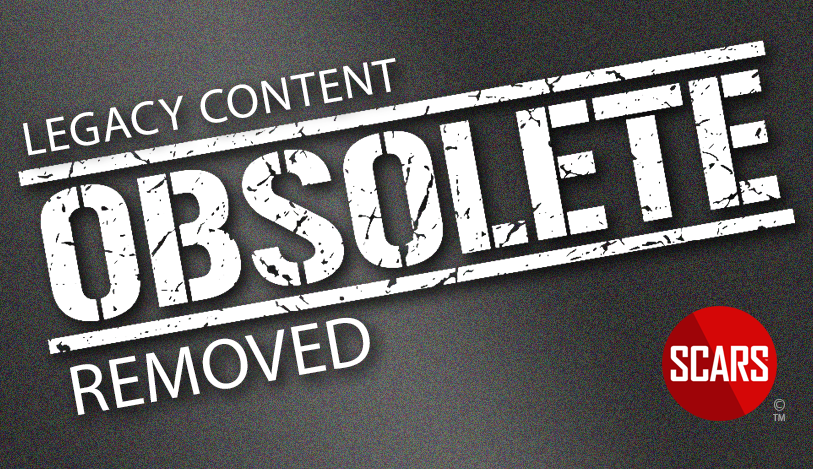
SCARS Institute’s Encyclopedia of Scams™ Published Continuously for 25 Years

Romance Scam Victimization
A SCARS Psychology of Scams Insight
Romance & Relationship Scam Victimization
Victimization (or Victimization) is the process of being victimized or becoming a victim.
Research that studies the process, rates, incidence, and prevalence of victimization is called Victimology.
vic·tim·i·za·tion
ˌviktəməˈzāSH(ə)n,ˌviktəˌmīˈzāSH(ə)n/
A Noun :: the action of singling someone out for cruel or unjust treatment. “we should be able to speak up without fear of victimization”
There Are A Few Different Types Of Victimization:
Peer Victimization
Peer Victimization: is the common experience among children of being a target of the aggressive behavior (bullying) of other children. But it also applies to Victims of Scams where “Alpha” Scam Victims (frequently in the role of providing support to other victims) turn their aggression (specifically their residual anger towards the scammer) against other victims because they do not follow or behave the way the “Alpha Victim” believes or demands that they do.
Passive Victimization
Passive Victimization: can occur passively where the Victim is still in denial and is rejected by peer groups, support groups, and family or friends. The victim clearly is a victim of a scammer, yet their refusal to accept or acknowledge that simple fact makes them an outcast.
Secondary Victimization
Secondary Victimization (also known as post-crime victimization or double victimization) relates to further victimization following on from the original victimization.
For example “victim-blaming,” such as inappropriate post-crime behavior or language by family or friends with which the victim has contact may further add to the victim’s suffering.
Victims may also experience secondary victimization by law enforcement or the justice system personnel upon reporting the scam. Victims will lose time, suffer reductions in income, often be ignored by police and other staff, and will remain uninformed about updates, to the extent that their frustration and confusion will turn to apathy and a declining willingness to further participate in the system.
A Romance Scam is especially stigmatizing because of its voluntary nature. The victim willingly participated in their own victimization is the reality, even though they were fully manipulated into this role. Victims frequently suffer isolation, be pushed away by friends and family, and held in contempt by law enforcement.
The re-traumatization of the scammer’s assault, abuse, of the scam victim through the responses of individuals and institutions is an example of Secondary Victimization. Secondary victimization is especially common in cases of Romance Scams but is not seen in most other forms of Cybercrimes.
Revictimization
The term revictimization refers to a pattern wherein the victim of a crime has a statistically higher tendency to be victimized again.
This latter pattern is particularly notable in cases of Romance Scam, where the scam was an emotionally-based crime, and where the emotional connection with the criminal remains long after the crime.
While an exact percentage is almost impossible to obtain, our own research estimates that the average number of times that a Romance Scam Victim is scammed is 3.4 times (as of 2021). The vulnerability to victimization experienced as an older adult (Senior Citizen) is increased as well.
Reasons as to why revictimization occurs vary by event type, and some mechanisms are not well known. Revictimisation in the short term is often the result of risk factors that were already present, which were not changed or mitigated after the first victimization; sometimes the victim cannot control these factors. For example, a victim loses money to the first scammer using a fake identity – such as stolen photos, then will hire a fake investigator to locate the “real” person to “help” that person.
The most common form or revictimization results from follow-on scams us as the “Recovery Scam” where a victim pays a service to recover their money – typically the original money was sent overseas (West Africa for example), and the service (for a fee) will investigate the matter, identify the scammer, and get some or all of their money back – of course this is also a scam. We estimate that as many as 5% of victims are revictimized by Recovery Scams amounting to as many as 50,000 per year.
Revictimization of Romance Scams Victims who were previously victimized is complex. We believe that the emotional and physical triggers that occured in the first scam created an actual physical addiction during the first scam. Like other forms of addiction, recidivism is quite high. Meaning that once the victim experiences the “highs” of the scam relationship, specifically designed to trigger these responses, that even with behavioral changes and learned protective procedures, the victim retains a tendency to “fall” for another scammer. Knowledge and acceptance of this can be most useful in reducing the future risk of revictimization. Additionally, continued participation in peer support structures (support groups) provides the structure and community that is useful in also reducing this risk.
Another theory of why revictimization occurs draws on the principle of “Learned Helplessness.” One theory goes that this state of being unable to fight back or flee the danger leaves the last primitive option: freeze, an offshoot of death-feigning. This follows that after the scam, the victim is unable to fight back, recover their money, or obtain justice, just gives up. By not engaging in the emotional or physiological recovery process, they will not learn any new behaviors or defenses and will return to the original behavior that made them an easy victim to begin with. It appears that a significant number of scam victims do exactly this – possibly as high as 30% fall into this mode – becoming revictimized over and over until financially they are unable to engage in the online behavior that places them at risk – they simply run out of money, lose their home, or worse.
Scammer Choose Pretraumatized Victims
In adulthood, the freeze response can remain, and some professionals have noted that victimizers sometimes seem to pick up subtle clues of this when choosing a victim. This behavior can make the victim an easier target, as they sometimes make less effort to fight back or use the judgment needed to avoid the scam. Afterward, they often make excuses and minimize what happened to them, sometimes never reporting the crime to the authorities. Our research shows that at least 95% of victims will not report the crime to law enforcement.
Victim Self-Image
Victims of scams and manipulation often get trapped into a self-image of victimization. The psychological profile of victimization includes a pervasive sense of helplessness, passivity, loss of control, pessimism, negative thinking, strong feelings of guilt, shame, self-blame and depression. This way of thinking can lead to hopelessness and despair without an active counter to this. This website and the other educational materials we publish on social media (such as on Facebook) serve as a mechanism for victims to understand their victimology, and through that understanding destigmatize themselves.
Additionally, we provide two other mechanisms:
- Our RSN Self-Help Recovery Process “RSN Steps” Program; and
- Online scam victims’ support groups on Facebook where victims can explore their situations and heal in a community of other victims without the judgmental pressures of non-victim family and friends. The link to our Facebook Support Group Information page is Scam Victims’ Support Group
If you are on Facebook and interested in joining one of our support groups please contact us by email at contact@AgainstScams.org. Our support groups are compliant with U.S. & International regulations for Victim’s Assistance and SCARS Victim Support Group standards.
References:
- Types Of Victimization – University of the Pacific
- Personal Victimization Variable Descriptions – U.S. BJS
- Victims and Victimization – National Institute of Justice
- Office for Victims of Crime – U.S. Department of Justice
PLEASE SHARE OUR ARTICLES WITH YOUR FRIENDS & FAMILY
HELP OTHERS STAY SAFE ONLINE – YOUR KNOWLEDGE CAN MAKE THE DIFFERENCE!
THE NEXT VICTIM MIGHT BE YOUR OWN FAMILY MEMBER OR BEST FRIEND!
By the SCARS™ Editorial Team
Society of Citizens Against Relationship Scams Inc.
A Worldwide Crime Victims Assistance & Crime Prevention Nonprofit Organization Headquartered In Miami Florida USA & Monterrey NL Mexico, with Partners In More Than 60 Countries
To Learn More, Volunteer, or Donate Visit: www.AgainstScams.org
Contact Us: Contact@AgainstScams.org
-/ 30 /-
What do you think about this?
Please share your thoughts in a comment below!
Table of Contents
LEAVE A COMMENT?
Recent Comments
On Other Articles
- Arwyn Lautenschlager on Love Bombing And How Romance Scam Victims Are Forced To Feel: “I was love bombed to the point that I would do just about anything for the scammer(s). I was told…” Feb 11, 14:24
- on Dani Daniels (Kira Lee Orsag): Another Scammer’s Favorite: “You provide a valuable service! I wish more people knew about it!” Feb 10, 15:05
- on Danielle Delaunay/Danielle Genevieve – Stolen Identity/Stolen Photos – Impersonation Victim UPDATED 2024: “We highly recommend that you simply turn away form the scam and scammers, and focus on the development of a…” Feb 4, 19:47
- on The Art Of Deception: The Fundamental Principals Of Successful Deceptions – 2024: “I experienced many of the deceptive tactics that romance scammers use. I was told various stories of hardship and why…” Feb 4, 15:27
- on Danielle Delaunay/Danielle Genevieve – Stolen Identity/Stolen Photos – Impersonation Victim UPDATED 2024: “Yes, I’m in that exact situation also. “Danielle” has seriously scammed me for 3 years now. “She” (he) doesn’t know…” Feb 4, 14:58
- on An Essay on Justice and Money Recovery – 2026: “you are so right I accidentally clicked on online justice I signed an agreement for 12k upfront but cd only…” Feb 3, 08:16
- on The SCARS Institute Top 50 Celebrity Impersonation Scams – 2025: “Quora has had visits from scammers pretending to be Keanu Reeves and Paul McCartney in 2025 and 2026.” Jan 27, 17:45
- on Scam Victims Should Limit Their Exposure To Scam News & Scammer Photos: “I used to look at scammers photos all the time; however, I don’t feel the need to do it anymore.…” Jan 26, 23:19
- on After A Scam, No One Can Tell You How You Will React: “This article was very informative, my scams happened 5 years ago; however, l do remember several of those emotions and/or…” Jan 23, 17:17
- on Situational Awareness and How Trauma Makes Scam Victims Less Safe – 2024: “I need to be more observant and I am practicing situational awareness. I’m saving this article to remind me of…” Jan 21, 22:55
ARTICLE META
Important Information for New Scam Victims
- Please visit www.ScamVictimsSupport.org – a SCARS Website for New Scam Victims & Sextortion Victims
- Enroll in FREE SCARS Scam Survivor’s School now at www.SCARSeducation.org
- Please visit www.ScamPsychology.org – to more fully understand the psychological concepts involved in scams and scam victim recovery
If you are looking for local trauma counselors please visit counseling.AgainstScams.org or join SCARS for our counseling/therapy benefit: membership.AgainstScams.org
If you need to speak with someone now, you can dial 988 or find phone numbers for crisis hotlines all around the world here: www.opencounseling.com/suicide-hotlines
A Note About Labeling!
We often use the term ‘scam victim’ in our articles, but this is a convenience to help those searching for information in search engines like Google. It is just a convenience and has no deeper meaning. If you have come through such an experience, YOU are a Survivor! It was not your fault. You are not alone! Axios!
A Question of Trust
At the SCARS Institute, we invite you to do your own research on the topics we speak about and publish, Our team investigates the subject being discussed, especially when it comes to understanding the scam victims-survivors experience. You can do Google searches but in many cases, you will have to wade through scientific papers and studies. However, remember that biases and perspectives matter and influence the outcome. Regardless, we encourage you to explore these topics as thoroughly as you can for your own awareness.
Statement About Victim Blaming
SCARS Institute articles examine different aspects of the scam victim experience, as well as those who may have been secondary victims. This work focuses on understanding victimization through the science of victimology, including common psychological and behavioral responses. The purpose is to help victims and survivors understand why these crimes occurred, reduce shame and self-blame, strengthen recovery programs and victim opportunities, and lower the risk of future victimization.
At times, these discussions may sound uncomfortable, overwhelming, or may be mistaken for blame. They are not. Scam victims are never blamed. Our goal is to explain the mechanisms of deception and the human responses that scammers exploit, and the processes that occur after the scam ends, so victims can better understand what happened to them and why it felt convincing at the time, and what the path looks like going forward.
Articles that address the psychology, neurology, physiology, and other characteristics of scams and the victim experience recognize that all people share cognitive and emotional traits that can be manipulated under the right conditions. These characteristics are not flaws. They are normal human functions that criminals deliberately exploit. Victims typically have little awareness of these mechanisms while a scam is unfolding and a very limited ability to control them. Awareness often comes only after the harm has occurred.
By explaining these processes, these articles help victims make sense of their experiences, understand common post-scam reactions, and identify ways to protect themselves moving forward. This knowledge supports recovery by replacing confusion and self-blame with clarity, context, and self-compassion.
Additional educational material on these topics is available at ScamPsychology.org – ScamsNOW.com and other SCARS Institute websites.
Psychology Disclaimer:
All articles about psychology and the human brain on this website are for information & education only
The information provided in this article is intended for educational and self-help purposes only and should not be construed as a substitute for professional therapy or counseling.
While any self-help techniques outlined herein may be beneficial for scam victims seeking to recover from their experience and move towards recovery, it is important to consult with a qualified mental health professional before initiating any course of action. Each individual’s experience and needs are unique, and what works for one person may not be suitable for another.
Additionally, any approach may not be appropriate for individuals with certain pre-existing mental health conditions or trauma histories. It is advisable to seek guidance from a licensed therapist or counselor who can provide personalized support, guidance, and treatment tailored to your specific needs.
If you are experiencing significant distress or emotional difficulties related to a scam or other traumatic event, please consult your doctor or mental health provider for appropriate care and support.
Also read our SCARS Institute Statement about Professional Care for Scam Victims – click here to go to our ScamsNOW.com website.

















Thank you for your comment. You may receive an email to follow up. We never share your data with marketers.